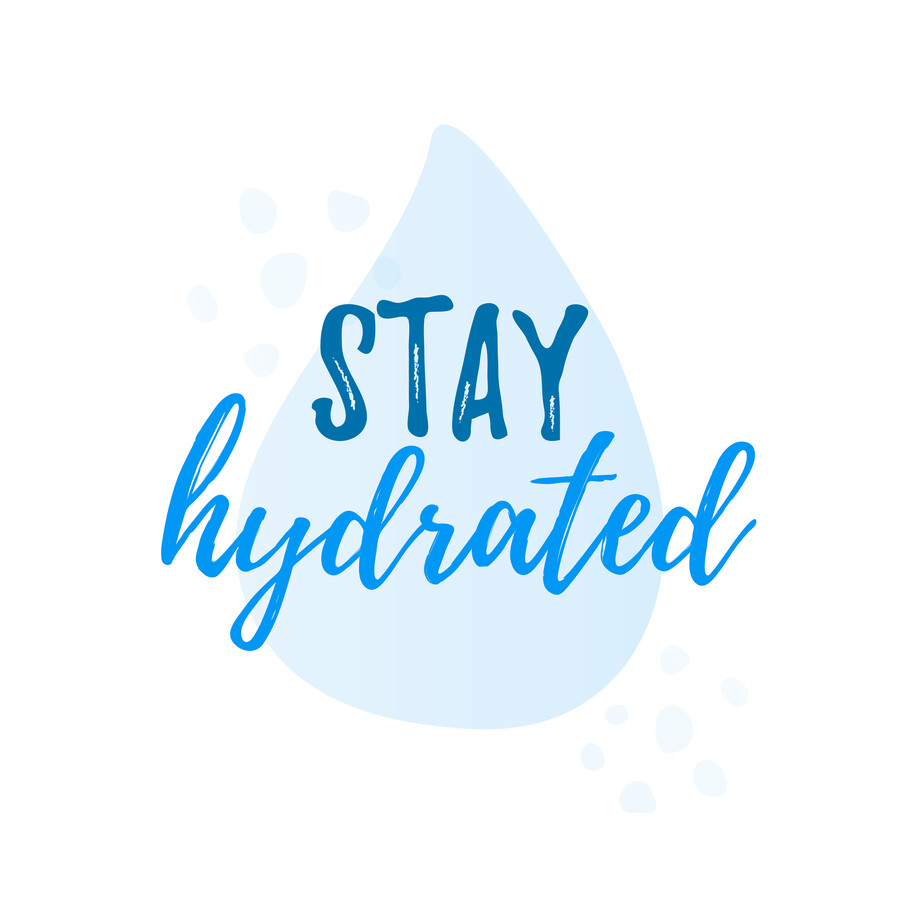~ by Richard Sgaglio
It’s summer and we will all be spending more time out of doors. Some of this will be in the heat of the day, so we want to make sure our older loved ones don’t become dehydrated. According to The Mayo Clinic, dehydration occurs when you use or lose more fluid than you take in, and your body doesn't have enough water and other fluids to carry out its normal functions. Many of us believe dehydration is prevented by our body’s natural sense of thirst to remind us to drink. However, as we age our sense of thirst will diminish significantly. A UCLA study found that 40% of seniors may be chronically under-hydrated. Additionally, according to The Cleveland Clinic, dehydration is often an overlooked health issue for seniors. That’s a frightening fact. So, what do we need to know?
Hydration is vital because it regulates body temperature, keeps joints lubricated, prevents infections, delivers nutrients to cells, and keep organs functioning properly. Being well-hydrated also improves sleep quality, cognition, and mood. When someone becomes dehydrated, they have the added risk of mental confusion. It is recommended that adult men and women drink between 8-10 cups of water per day.
Signs of dehydration to look for in older adults:
- Dry skin
- Dark amber urine
- Confusion
- Fatigue
- Dizziness
- Dry mouth
- Rapid heart rate
- Low blood pressure
5 Reasons Seniors Need Good Hydration
- As we age, physiological changes can put us at a higher risk of dehydration, such as increased fluid loss, reduced body water content, and a decrease in fluid consumption.
- As we age, the amount of fluid in our bodies begins to decrease.
- Feeling thirsty is your body’s way of letting you know you need water. However, because the thirst response becomes weaker with age, older adults may not know they need to drink.
- The function of the kidneys can decline with age, meaning that more water may be lost through urination.
- Many older adults have underlying health conditions or take medications. In some cases, these conditions or meds can lead to an increase in water loss through urination.
How Dehydration Affects the Brain
You may be surprised to learn that about three-fourths of the brain is made up of water, and it requires an ample supply of liquid to work at peak capacity. Gray matter actually shrinks when the body is dehydrated. And consistent dehydration can cause the brain to age more quickly than normal. It’s a growing concern among older adults in general. Government research shows that dehydration is one of the primary reasons people age 65 and older are sent to the emergency room.
For a person who has trouble remembering or often feels disoriented, even mild dehydration can be detrimental to their health and quality of life. A lack of water can aggravate symptoms of dementia, causing mental fatigue, sudden changes in mood, confusion, and trouble processing information. They can also experience feelings of nausea, loss of balance, and headaches.
On the other hand, a well-hydrated brain can help with concentration, memory function, mood, and even better sleep quality. Water is also important for heart health and muscle function, which are necessary to stay physically active.
Unfortunately, people with dementia are at a heightened risk of becoming dehydrated. They often simply forget to drink. Some have trouble communicating what they need to others.
Tips to prevent dehydration
If you’re an older adult or caring for one, the following tips may help people stay well hydrated:
Drink water throughout the day. Other beverages that may also help with hydration include milk, sparkling water, and fruit juices with low sugar or those diluted with water. Reduce your intake of coffee and tea, as they can act as a diuretic.
Try to include foods in your diet that have higher water content. Some examples include watermelon, cantaloupe, cucumber, celery, and strawberries.
Plan to drink more water if you’re going to be out in the heat for a prolonged period of time, or if you’re going to be exercising.
If you’re a caregiver for an older adult, you can do the following to help prevent dehydration:
- Remind them to hydrate throughout the day
- Keep water in places where it’s accessible and easy to reach.
- Offer them foods with high water content
The summer is a time for sun and fun but make sure you and your loved one are prepared to enjoy it with plenty of fluids to ensure a healthy season for everyone!
The information in the above article is not intended nor implied to be a substitute for professional medical advice, diagnosis, or treatment. Always seek the advice of your physician or other qualified health provider with any questions you may have regarding a medical condition.
